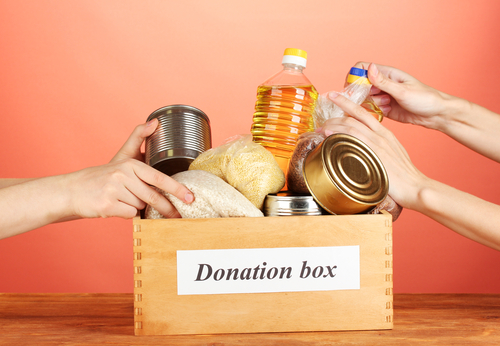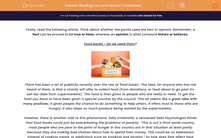Firstly, let's read the following article.
Think about whether the points used are fact or opinion.
Remember that a fact is something that is true, whereas an opinion is what someone thinks or believes.
Food banks - do we need them?

There has been a lot of publicity recently over the rise of food banks. The idea, for anyone who has not heard of them, is that a charity will offer to collect food (from donations, or food about to go past its sell-by-date from supermarkets). This food is than given to people who are really in need. To get the food, you have to have been given a special voucher by the council. This all seems like a great idea with many positives: it gives people the chance to do something to help others; it offers food to those who are hungry; it also stops so much produce being wasted by the supermarkets.
However, there is another side to this phenomena. Sally Entwhistle, a renowned debt psychologist thinks that food banks could just be exacerbating the problems of poverty: “This is not a third world country, most people who are poor to the point of hunger in this country are in that situation at least partly because they are making bad choices about how to spend their money. This could be on takeaways instead of cooking meals, or addictions such as smoking and alcohol.” So how does that affect food banks? “A food bank may give you enough to survive for a few days, but the problem of poor choices is still there, in the background. It is a very short-term solution.”
Max D'Oliver, managing director of a charity which runs five food banks in London, argues against this view: “Yes, some people say that it is short-term, but many people only need help once, in their most dire need to feed their families. Once they have had a decent meal, they can think clearly to sort out their finances and to do their very best to stop themselves from getting into this situation again. If you are in an accident, you might go to the hospital, once, to get better. It does not mean that you'll be back every week. Once you've had the emergency help, you can look after yourself again, the same is often true for food banks".
There are very interesting points on either side of this debate, but for the time being, with cuts to welfare spending at a record high, food banks look like they are here to stay.

Now, let's go through the activity and answer the following questions.
If you want to read this extract again, just click on the red help button on the screen at any time.








